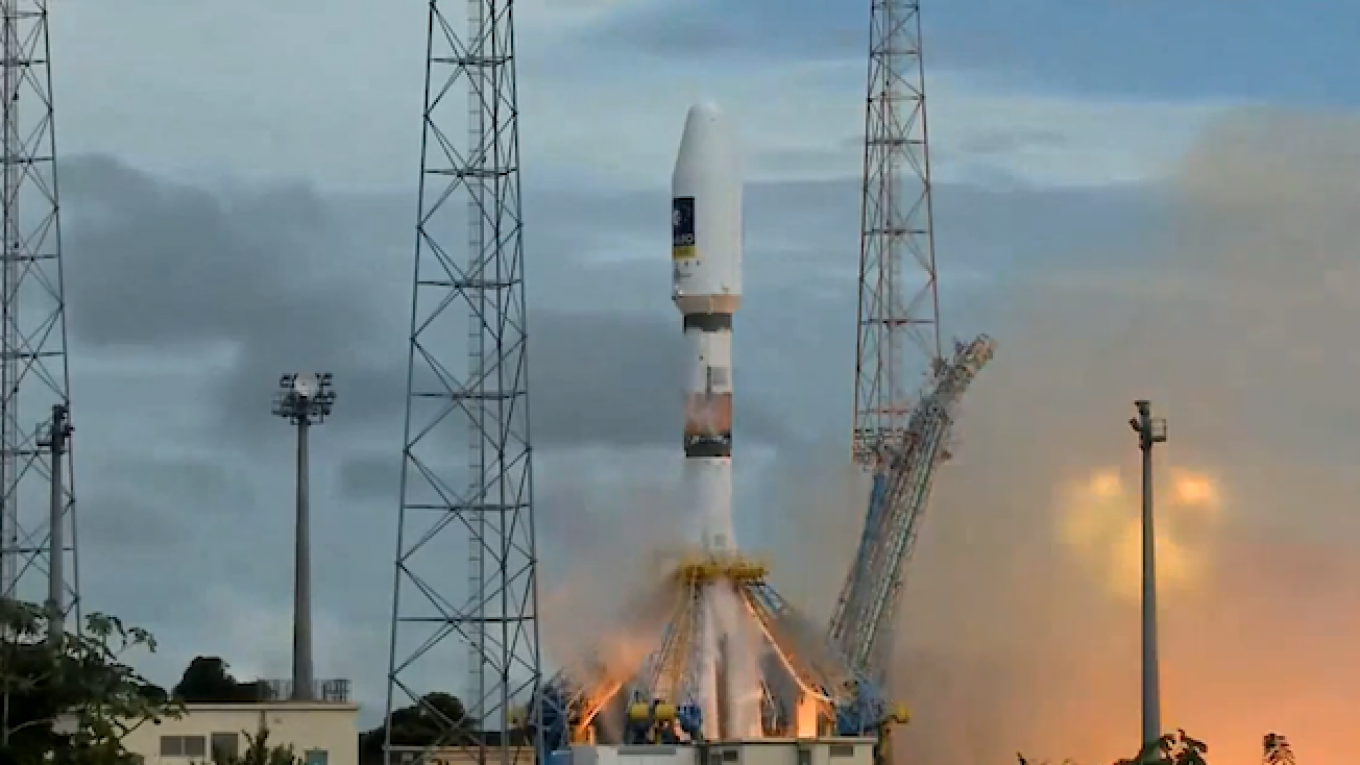PARIS — Investigators believe a Russian production flaw was behind the botched August launch of two satellites central to development of European satellite navigation system Galileo, the satellite launch company Arianespace said Wednesday.
Revealing the findings of an inquiry panel that studied why the satellites were put into the wrong orbit after launch from French Guiana last august, Arianespace said Russian firm NPO Lavochkin would correct a production flaw identified by investigators and that launches could resume from December.
"The anomaly occurred during the flight of the launcher's fourth stage, Fregat, designed and produced by NPO Lavochkin. It occurred about 35 minutes after liftoff, at the beginning of the ballistic phase preceding the second ignition of this stage," said an Arianespace statement.
"The Inquiry Board also eliminated the hypothesis that the anomaly could have been caused by the abnormal behavior of the Galileo satellites," said the statement.
The August hitch was the latest setback for Galileo, which has been beset by delays, financing problems and questions over whether Europe needs to come up with a rival to the dominant U.S. Global Positioning System and Chinese and Russian systems.
The European Union has approved a 7 billion euro ($8.8 billion) budget for Galileo and another navigation project between now and 2020. It says Galileo will strengthen Europe's position in a satellite-navigation market expected to be worth 237 billion euros in 2020.
A Message from The Moscow Times:
Dear readers,
We are facing unprecedented challenges. Russia's Prosecutor General's Office has designated The Moscow Times as an "undesirable" organization, criminalizing our work and putting our staff at risk of prosecution. This follows our earlier unjust labeling as a "foreign agent."
These actions are direct attempts to silence independent journalism in Russia. The authorities claim our work "discredits the decisions of the Russian leadership." We see things differently: we strive to provide accurate, unbiased reporting on Russia.
We, the journalists of The Moscow Times, refuse to be silenced. But to continue our work, we need your help.
Your support, no matter how small, makes a world of difference. If you can, please support us monthly starting from just $2. It's quick to set up, and every contribution makes a significant impact.
By supporting The Moscow Times, you're defending open, independent journalism in the face of repression. Thank you for standing with us.
Remind me later.






